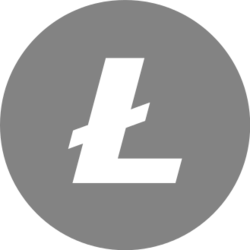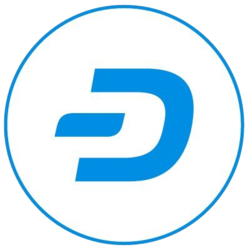Anna: Hello, everybody! And I’m pleased today to introduce to you Don Tapscott, who is one of the leading blockchain leaders. And he is a CEO of “Dabscott group” and Executive chairman and co-founder of the Blockchain Research Institute. And if you haven’t seen yet, you should watch his TED-talk which’s got the most number of views from the people in blockchain industry. So, nice to see you today here with us, Don.
Don: I’m happy to be here!
Anna: Yeah, so, can you tell us how did you know about blockchain? Which year was it?
Don: Well, I wrote a couple of books in the 1980s that nobody read. I think, my mother bought most of the copies but in the early 1990s I started writing some best-selling books. In 1993 the book “Paradigm shift” which is, obviously, a big book and then in 94 i wrote “The digital economy” which was the first bestseller about the web in business. And 20 years later I was asked to write the anniversary addition to “The digital economy”.
So I had to think about what had occurred over the last decades, and I came to the conclusion that the digital age is really entering a second era. That for 40 years we’ve gone through the period of mainframes and mini computers, PCs, the internet, the web, the mobile web, social media, the cloud, big data. And now we’re entering a new era.
Our technology infuses itself into everything, into the physical world with billions and trillions of inert objects that become smart communicating devices and doing transactions, where we have technology that learns to do things that it wasn’t programmed to do. Machine learning, artificial intelligence and many other exciting technologies. But I came to the conclusion that the foundational technology for this whole period, this next era, was going to be blockchain or the underlying technology of cryptocurrencies, and to me, this technology represents the second era of the internet. That for decades we’ve had an internet of information but now we’re getting an internet of value or anything of value: from money, securities, intellectual property, the data in our identities, contracts, deeds, music, art, votes. Any asset can be managed or transacted in a secure and private way peer-to-peer and where trust is not achieved by an intermediary – it’s achieved by cryptography, collaboration and some clever code.
So, I decided that this is a really big deal and so I set out to write a book on it, and I happen to be talking to my son Alex who was an investment banker, who was also very interested in this topic. And we decided to write a book together. And I got lucky on the timing with that book. And it became the big global bestseller, it’s now 19 languages and that led to many amazing things.
Anna: So, it turns out that you found out about cryptography and blockchain before it was, actually, mainstream, even in the last century?
Don: That’s right. Well, it was really five years ago, around 2015, that we started really getting serious about this technology.
Anna: And yeah, I’ve seen your recent book on supply chain. Can you tell more about your research on it and as well about your son’s book, Alex’s, on financial industry in blockchain?
Don: Yeah, sure. Well, we launched the Blockchain Research Institute, and the BRI is conducting a series of 110 different projects about the importance of this technology. And I’ll just show you a little bit about what we’re doing here. Anyway, we’re doing all these research projects, we’re holding a series of big events, and there were physical events. So, what we’ve done with this research is companies need to pay 150 000 to 200 000 dollars to be able to join our program and for that they receive millions of dollars of value.
So, what we did is we are starting to create books. And the first book we created was one called “The financial services revolution” by Alex Tapscott that’s available on Amazon now. And the second book is called “The supply chain revolution”. So, here you can see on the screen that we’re doing all of this research but we also have a series of educational programs and a bunch of other sort of activities that are underway.

This was the first book and it’s now available on Amazon. And it’s a gorgeous book I’ve told people:” if you don’t think that that’s the most profound thing ever written about the financial services industry today, just send me a note and I’ll send you your money back for the book”. But now we’re publishing a book every quarter, so this book has already come out called “The supply chain revolution”, came out a month ago. And I noticed that it was the number one hot new release on Amazon in the shopping and commerce category. So, we’re very excited about these books and we’re very proud of them. The other a really big thing, that I’ll tell you about that we’re doing, is we’ve launched through INSEAD, which is the big business school outside of Paris, they’re our formal academic partner. And we’ve launched a series of courses with them and these are available on Coursera which is the largest platform.

And people can register for these courses “Blockchain-revolution” and try them out at coursera.org, and we’re very proud of these courses. We, actually, spent a million dollars developing them. And there are four courses, they’ve 200 lectures or 200 videos, a whole series of quizzes and all kinds of great stuff. And the final course is a practicum, where the learner needs to figure out a use-case in their industry at the end. You end up with a pitch deck to either start your new your own business (and we show you how to do that) or else a pitch deck for your CEO to make a blockchain initiative in your company.
Anna: So, do you currently cooperate with any big enterprises? Do you help them with blockchain adoption? Do you organize any courses for them like internal courses?
Don: Well, we have. Our work is funded by many of the largest companies in the world. So, we work with these companies in the technology industry, and these in the financial industry.

We also have a number of other big companies like Coca Cola and FedEx and Delta and a whole series of companies.

And then we also have a number of governments that are joining the program. And then we work with these small early-stage companies too, called “blockchain pioneers” , that’s sort of the name that we’ve given them. And in terms of governments, you know, I’ve been out meeting presidents and prime ministers of various countries before COVID and I’ll be back out on the road again. But we have a number of governments that are joining our program as well. The other thing that we do is, we spend a lot of time on stages. And, me and Alex are two of the most in demand speakers in the world. And some of these are huge audiences: this was 29 000 people, and I was one of the opening speakers, Barack Obama was the closing speaker. So, we’re very very active in collaborating with all these companies and governments.
Anna: Yes, it’s great that we have such proponents of blockchain who spread the knowledge about this technology. And you mentioned, you spoke, that cooperate with governments. Can you tell us about your opinion on central bank digital currencies?
Don: Well, there are three types of digital currencies. One of the self-organizing community currencies — Bitcoin — was the first of those. The second is corporate currencies like Facebook’s Libra. And if Facebook can get away with that, that’s a big “if”, they’ll become the largest retail bank in the world by an order of magnitude. But the third type, and the one that may end up being the most significant, are central bank digital currencies where the fiat currencies of nation states becomes an actual digital currency.
We don’t have that today. The dollar is not a digital currency. Well, people think: “well I hardly ever use cash, I have credit cards and I tap my phone”, and so on. That’s not a currency – those are big centralized systems that point to the distribution and ownership of money but they’re not actually systems that have money as a bearer instrument moving around. A bearer instrument: If i have cash in my pocket, I’m the bearer of that cash. And with digital currencies I would actually, you know, on my mobile or whatever wallet I have, I would be the owner of that cash.
So, there’s good news and bad news here. These could be very powerful and they could help us build a better economy. They could enable central bankers to manage money a lot better monetary policy. You put money into the system – you could find out what happens to it, how it’s being spent, it’s being saved, people investing, they buying things. If you wanted to give money to population, for example, in a crisis, like a pandemic, you could drop that money right on into their wallets. Because you have greater transparency, there could be a lighter touch on regulation, there’ll be all kinds of good benefits.
The downside is that unless this is implemented properly, it gives governments very powerful ways of monitoring citizens and spying on citizens. So, there’s this is a time of great promise and great peril. So, the approach that we take on the central bank digital currencies is critical. Now, there’s also a big global battle shaping up. So, the first out will be China. Probably, their DCEP making over time, the RMB, a digital currency, and if they do that they roll it out across one belt, one road linking Hong Kong and Rotterdam, they take it into Africa where they’re strong, into South-East Asia. And very quickly the Chinese currency would become the currency of record replacing the US dollar.
So, this has got the Federal Reserve in the United States freaked out and like what will be the currency of record in the world? Because the dollar has been that for many decades. And then you have people like Mark Carney, former head of the Bank of England, who says:” Well, no national currency should be the global currency of record. We should create a global currency”. This is what John Maynard Keynes was proposing at Bretton Woods after the Second World War in 1944, – the creation of a global currency.
Well, Carney mused, could we create a what he called a hegemonic synthetic global currency where all of these national digital currencies, central bank digital currencies would roll up into one single currency. So, we’re doing a lot of work on this topic and if people go to the Blockchain Research Institute, they can read a lot about it. Recently, Alex Tapscott and Christopher Giancarlo, the head of The Digital Dollar Project in the United States, had an extraordinary conversation, and that’s now available for free on our website blockchainresearchinstitute.org/
Anna: But still regarding general currency for all the countries, it sounds like utopia because every country would like to dominate and, especially, this rivalry between the USA and China. And everybody wants their own national currency to dominate.
Don: Yeah, well, that’s Mark Carney’s proposal is that none of them would. That the dollar, the pound, the yen, the rmb, the euro – they would all roll up into a global currency that synthesizes a synthetic currency that brings all of these together. I think that’s a pretty interesting idea and we’ve been researching that concept.
Anna: Yeah, that sounds interesting. And can you tell us about your opinion on such hot topic right now as DeFi?
Don: DeFi, yeah… Well, for sure. Now I’m not really the right person to interview about this because Alex Tapscott is, probably, one of the world’s leading thinkers about DeFi, and we’re very deep into it. And DeFi is the ultimate transformation of the financial system and in many ways it’s a huge threat to the existing banks and financial institutions but there are lots of steps that can be done before we get to full DeFi. One of the best discussions of this is in Alex’s book “The financial services revolution”. And anyone who’s interested in this topic should really take a look at that.

Anna: And as well, I recently read the news that you expand to Europe with your Blockchain Research Institute. Can you tell us more about it and generally about your plans?
Don: Yeah, well the global pandemic is a devastating thing. The economic costs are staggering, the human costs are unfathomable. Unfathomable but we decided, to hell with it, we’re going to grow and we’re going to expand. So, we’ve launched the Blockchain Research Institute Europe – BRIE. So, if you google “Blockchain Research Institute Europe”, there’s a whole new website, you can go there. And it’s in a partnership with a German company, and it’s based in Frankfurt – the company is called Block Wall. They’re they’re building a real office, they have staff. And we’re welcoming European countries throughout Western Europe and, also, Eastern Europe to join in the Blockchain Research Institute Europe, and they’ll get full advantage of all of the work that we’re doing in North America and globally. But they’ll also get a whole bunch of custom activities in Europe as well.
Anna: – That’s great. So, I wish you good luck in this development.
Don: – Well, thank you very much and it was very nice to meet you.
Anna: – Nice to talk with you too.
Don: – Okay, take care.




























